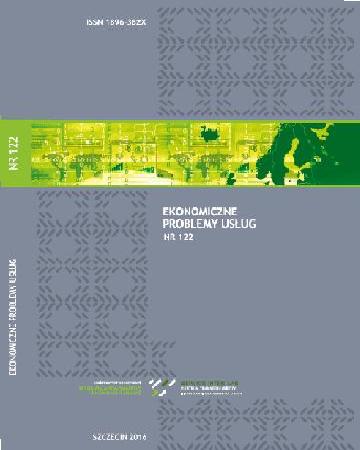
ISSN: 1896-382X
eISSN: 2353-2866
OAI
DOI: 10.18276/epu.2015.120-10



Issue archive /
nr 120 2015
Ograniczenia podwójnego zapisu na kontach księgowych w rachunkowości
(Limitations of double-entry bookkeeping on accounts in accounting)
| Authors: |
J.Bogusław
Wedler
Uniwersytet Szczeciński |
| Keywords: | account accounting accounting Multilateral entry Double entry accounting |
| Data publikacji całości: | 2015 |
| Page range: | 13 (139-151) |
Abstract
The purpose of research study is to indicate a new solution of accounting entry corresponding to the problematic situation, resulting from the limited possibilities of use of the existing account, functioning within the framework of double-entry accounting and the fundamental objectives of accounting. Methods applied in this research study are study of literature (foreign and Polish literature), deduction and induction and the method of Ideals. As a result, the study proposes a new type of account, enabling the objectives of accounting. The solution to the problem is an evolutionary way of development of accounting records, which will fully describe economic events on accounts.
Download file
Article file
Bibliography
| 1. | Dobija D., Kucharczyk M., Rachunkowość zarządcza, Wydawnictwa Akademickie i Profesjonalne, Warszawa 2009. |
| 2. | Hendriksen E.A, van Breda M.F., Accounting Theory, 5th edition, Richard D. Irwin Inc., Chicago 1992. |
| 3. | Ijiri Y. (1982), Triple-entry Bookkeeping and Income Momentum, „Studies in Accounting Research” [wyd. American Accounting Association, Sarasota, Florida] 1982, nr 18. |
| 4. | Ijiri Y., A Framework for Triple-Entry Bookkeeping, “The Accounting Review”, October 1986. |
| 5. | Lee G.A., The Coming of Age of Double Entry: The Giovanni Farolfi Ledger of 1299-1300, “The Accounting Historians Journal” 1977, 4, nr 2. |
| 6. | Messner Z., Pfaff J., Teoria i zasady rachunkowości, Stowarzyszenie Księgowych w Pol-sce – Zarząd Główny, Instytut Certyfikacji Zawodowej Księgowych, Warszawa 2013. |
| 7. | Nowak E., Rachunkowość: kurs podstawowy, Polskie Wydawnictwo Ekonomiczne, War-szawa 2008. |
| 8. | Nystromer B., Four Thousand Years in the Office, National Office, Management Associa-tion, Stockholm 1940. Przedruk w zbiorze: The World of Business, red. E.C. Bursk, D.T. Clark, R.W. Hidy, t. I, Simon & Schuster, New York 1962. |
| 9. | Pacioli L., An Original translation of the Tratise on Duble-Entry Book-keeping (by Pietro Crivelli for the Institute of Book-keepers), Harper & Row, New York 1924. |
| 10. | Peragallo E., Origin and Evolution of Duble-entry Book-keeping, American Institute Pub-lishing Co., New York 1938. |
| 11. | Roover R. de, The Development of Accounting Prior to Luca Pacioli According to the Ac-count-Books of Medieval Marchants, “Studies in the History of Accounting” [Richard D. Irwin, Homewood] 1956, vol. III. |
| 12. | Roover R. de, New Perspectives on the History of Accounting, “The Accounting Review” 1955, nr 7. |
| 13. | Sombart W., Der moderne Kapitalismus, Dunker und Humbolt, München, Leizig 1928. |
| 14. | Wedler J.B., Wielokrotny zapis w rachunkowości. Wprowadzenie, Max Adler, Londyn 2015. |